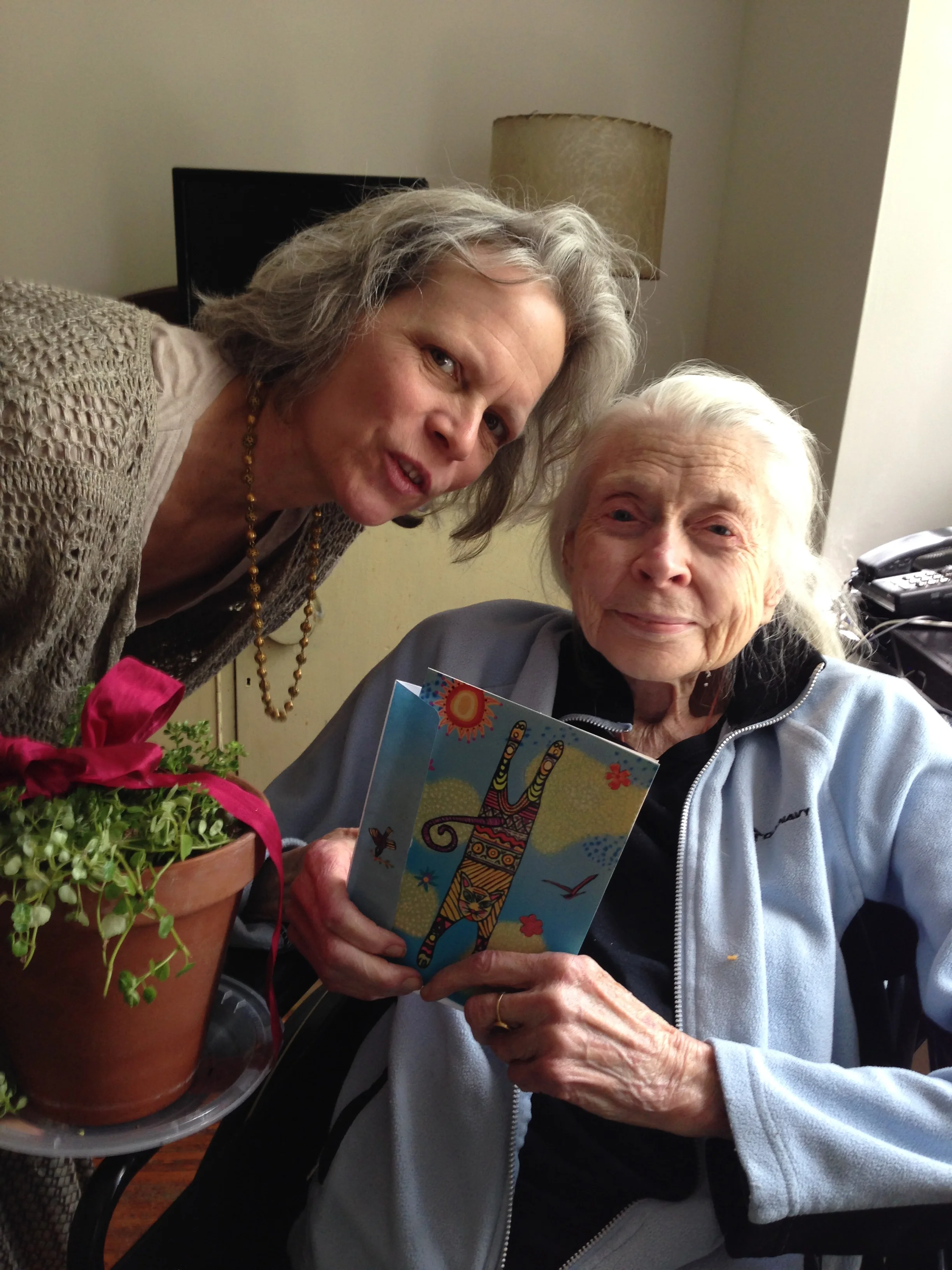What officers from New York City 30th precinct did, they did with empathy, sensitivity, and considered deliberate decision-making. They arrested a home health aide at the end of her shift for elder abuse. Well, the “elder abuse” umbrella term in my vernacular isn’t a crime, but specifically larceny wrapped up with fraudulent use of an elder’s federal entitlement food stamp benefit is a very serious crime.
I called 911 for an unaccounted for food stamp card charge of $13.19 which occurred four minutes after the $15.55 legitimate purchase matching the items on a 94 year old woman’s handwritten grocery list. It wasn't my idea to call 911 for what is not fire, chest pain, or blood on the floor, but the 30th precinct officer who interacts with neighborhood elder abuse advised me that this required officers on the scene; the business card of her predecessor was already in the elder's home. And so I called 911 after Fatima, the home health aide who had the food stamp debit card and the PIN, but no receipt, denied making any other purchases. It’s easy to verify date, time, and location of a food stamps debit card purchase, even the victimized elder knew how to call the number to listen to the automated account history. By the time I called 911, I reached the opinion that Fatima used the food stamps debit card once to buy the elder's groceries and a second time to buy herself exactly $13.19 of groceries to take home. She left me no room for doubt.
I called the police after I left the apartment and also after I called Tender Care, Fatima's employer. Neither Fatima nor Tender Care expected that I would go back to the home where the story was being revised. By the time the responding officers arrived and I returned, a bag of groceries and a receipt had appeared, maybe both were discovered after a call from her employer prompted her to find them. Now Fatima changed her previous statement from "No. I didn't buy anything else," to "She told me buy them. She called me while I was in the store." The two young responding officers from the 30th precinct heard everyone express their viewpoints with respect. They encouraged the accused to give her version of the grocery charge. They allowed the victim to eat dinner in her worn house dress while she repeated “I didn’t tell her to buy that,” and "I don't eat that." They gave me, the irate advocating home visit doctor, a voice to the “larger implications for all other old people.” I reported that after I called Fatima's employer, she tried to make the victim whole by tossing $20 on the kitchen table and asked for change.
These first responders were realistic. They said the District Attorney was unlikely to want to prosecute. They understood that the situation was perp's word verses victim's word. Even more importantly, they understood that old people have an additional credibility barrier because even when they can give details about the televised royal wedding in response to a memory question, someone is going to claim they "forget," "forgot," "don't remember" or "are losing it." When the young responding officers failed in their empathetic negotiations, they had to called even more senior officers to approve putting a home health aide in hand-cuffs. A sergeant and seasoned officer arrived and continued to search for a resolution which didn't involve arrest.
A small piece of what I call elder abuse includes the crimes of taking money out of wallet or bank account, or in this case the government entitlement assets of an old person. Think about that. This strong word abuse is used when a few dollars or social security check is stolen inside the home by a grandchild or a home care worker. To most people a pickpocket on the subway is a bigger crime and a more obvious call to 911. But what is the difference? The only difference is the pickpocket is a stranger in an admittedly dangerous world. What does domestic theft between intimates have in common with pickpockets in the outside world? It’s not an isolated incident. The home health aide who successfully makes off with $50 in cash or $13.19 in groceries has thieved an elder before and will do so again. From the victim’s point of view, the pickpocket is random crime by an anonymous bad person, but a theft from a home health aide or family member actually does leave bigger bruises and more permanent scars. It has longer lasting effects of victimization on elders who know they need help, were failed by trust and are now proven to be unsafe in their own home. That's why abuse is an appropriate word.
Fatima was arrested in the kindest way possible. The elder felt the advocacy around her. Based on the exemplary actions of these five officers from the 30th precinct, I felt that perhaps my microcosm world of the homebound in New York City had one less serial elder abuser. The 30th is my home precinct, so on a closer-to-home level, I hope they keep up the good work for the next 30 years which will be when I will need them to advocate for me.

